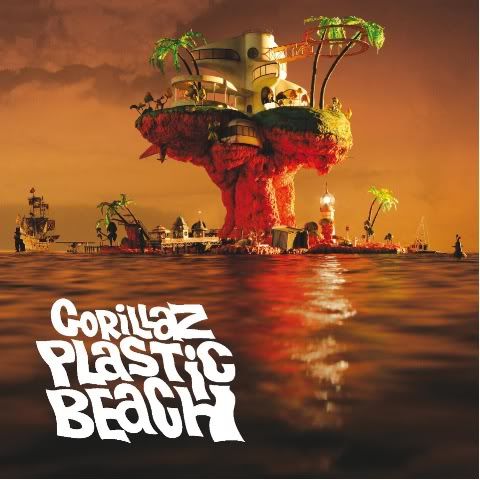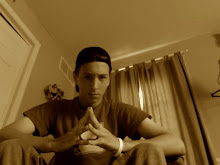I am rereading through this series of graphic novels by Warren Ellis and Derick Robertson. I have a love-hate relationship with the stories. I picked up the first issue as a reprint of the Vertigo line: for $1 it was being offered as a hook to engage new readers to successful stories of the past.
I liked Warren Ellis's writing in most comics mediums that I read. He has a rich and dark draw to character detail, while Derick Robertson was unfamiliar to me until I read this.
The first issue features Spider Jerusalem, acclaimed journalist & best-selling author of three books, living in squalor at the top of a mountain. He has been a recluse for the past five years, when his publisher calls, reminding him that his contract calls for two more books. Spider had long spent the advances on his book contract, and is now faced with legal litigation if he fails to fill his end of the contract.
He packs up his junk and disarms his mountain shack's heavy defenses, put in effect to ward off any visitors or fans from his days in the city. But to this city he must return, because if he is to write two more books about the city, he has to experience it for himself. And, as chronicled in the ten volumes, that is what he does.
The city is an entity in itself. The population drowns in constant media advertisement, addictive mind-altering pharmaceuticals, and thousands of start-up religions. Everything is tailored to the consumer, but nothing fits for long. And Spider Jerusalem has returned to reclaim his position at the center of the information web, pulling strings and uncovering the decaying flies trapped in the city's framework.
And that is the crux of the matter. I have conflicting thoughts regarding this series' premise and presentation. Ellis's writing is excellently plotted, though it uses a channel of much swearing and creatively distasteful epithets. Robertson's artwork is mind-numbingly detailed, from street litter to background billboards, an environment is created and fleshed out. It is the flesh part that is troubling: the city's inhabitants are very carnal in their appetites and unashamed of their vices. In a world where almost everything is recorded, the probability that your vices will merit the attention of others is curiously inversely proportional.
The artwork depicts a city that is quite depraved and given whole-heartedly to the newest novelty, once the nasty business of preparing to survive the next day is settled. Spider is a novelty among novelties. No other journalist writes like he does with such success and popularity. He is not a personable fellow, like a Socrative gnat, he buzzes about the city with a recorder & a determination to uncover the truth behind the lies. The problem remains that his audience sees him as entertainment, and whatever he shows them, the changes do not last for long. They find new and more horrible ways to enslave themselves to no greater purpose.
Spider is self-destructive in his habits, smoking constantly, drugging himself in his off-days, and chasing stories which usually result in him having a wolf by the ears. Damned if you do, damned if you don't. And Spider grins and demands them served as a double and knocks it back. He will live that way until he can not or does not have the strength to do so.
Because Spider loves and hates his city more passionately than I love and hate these stories. He loves it for what it is and that it gives him a purpose to seek out truth, but he hates that the city is what it is and that it will not listen and change for better.
6 months ago



